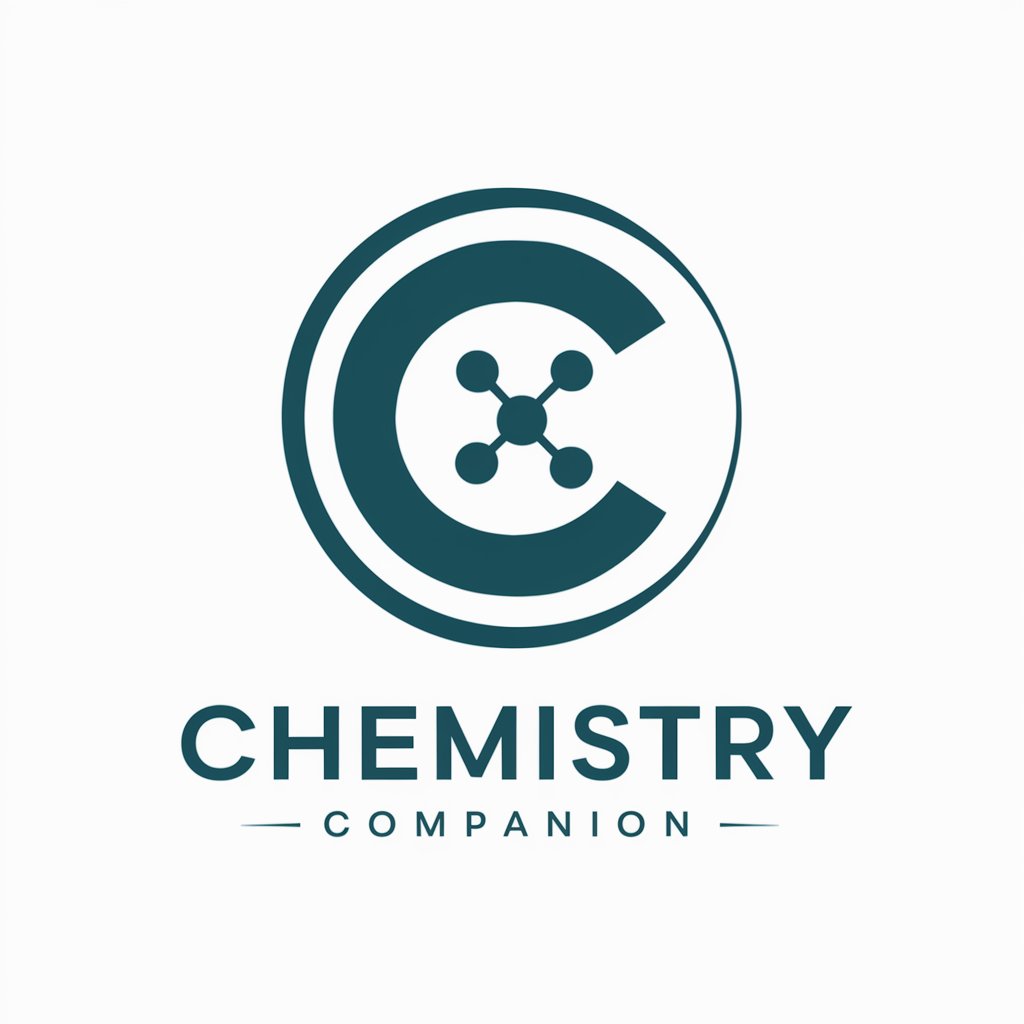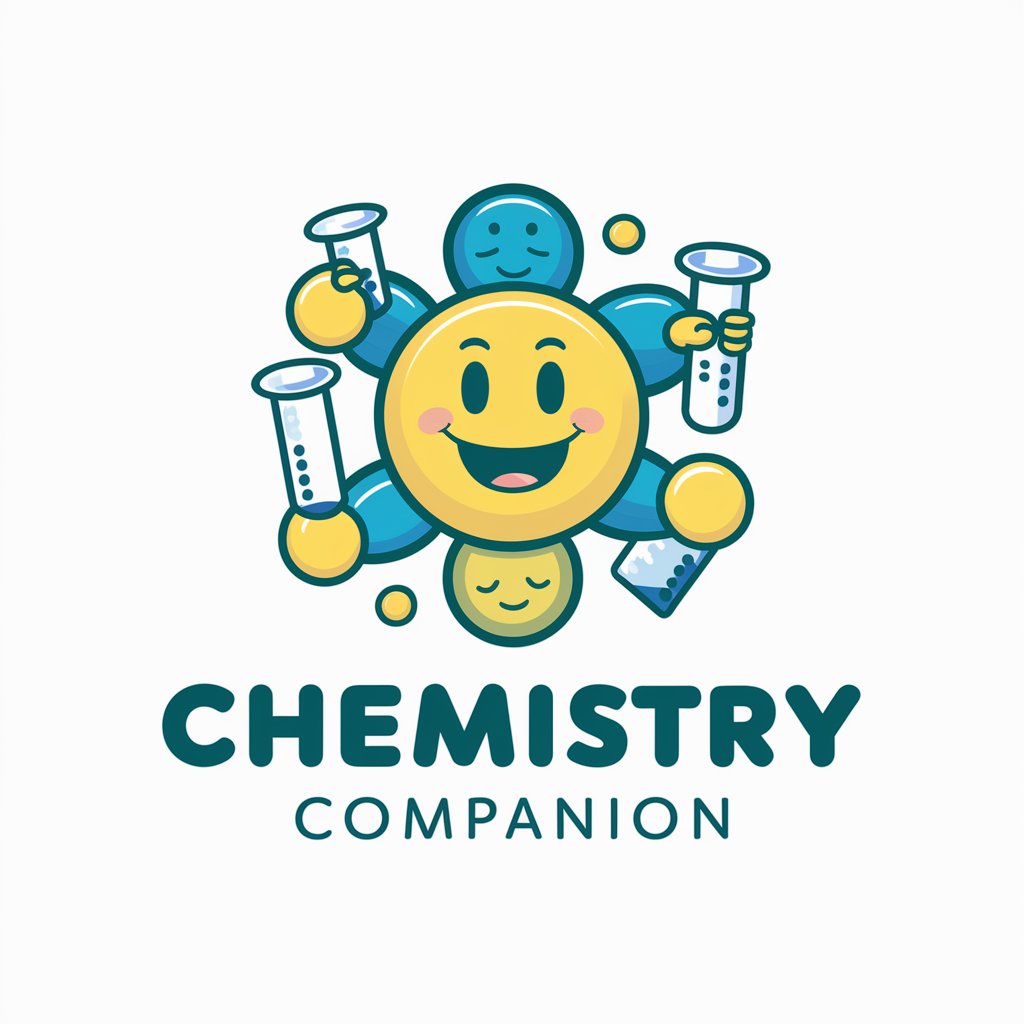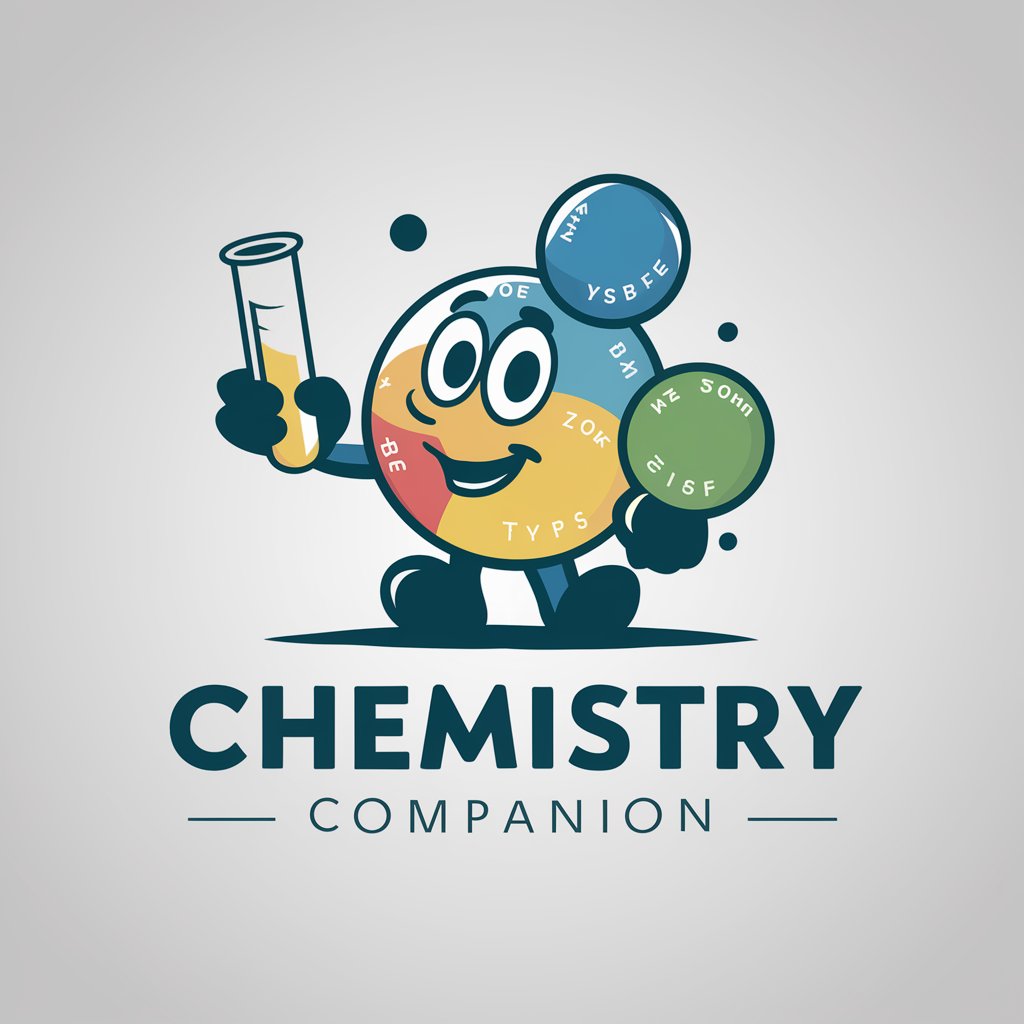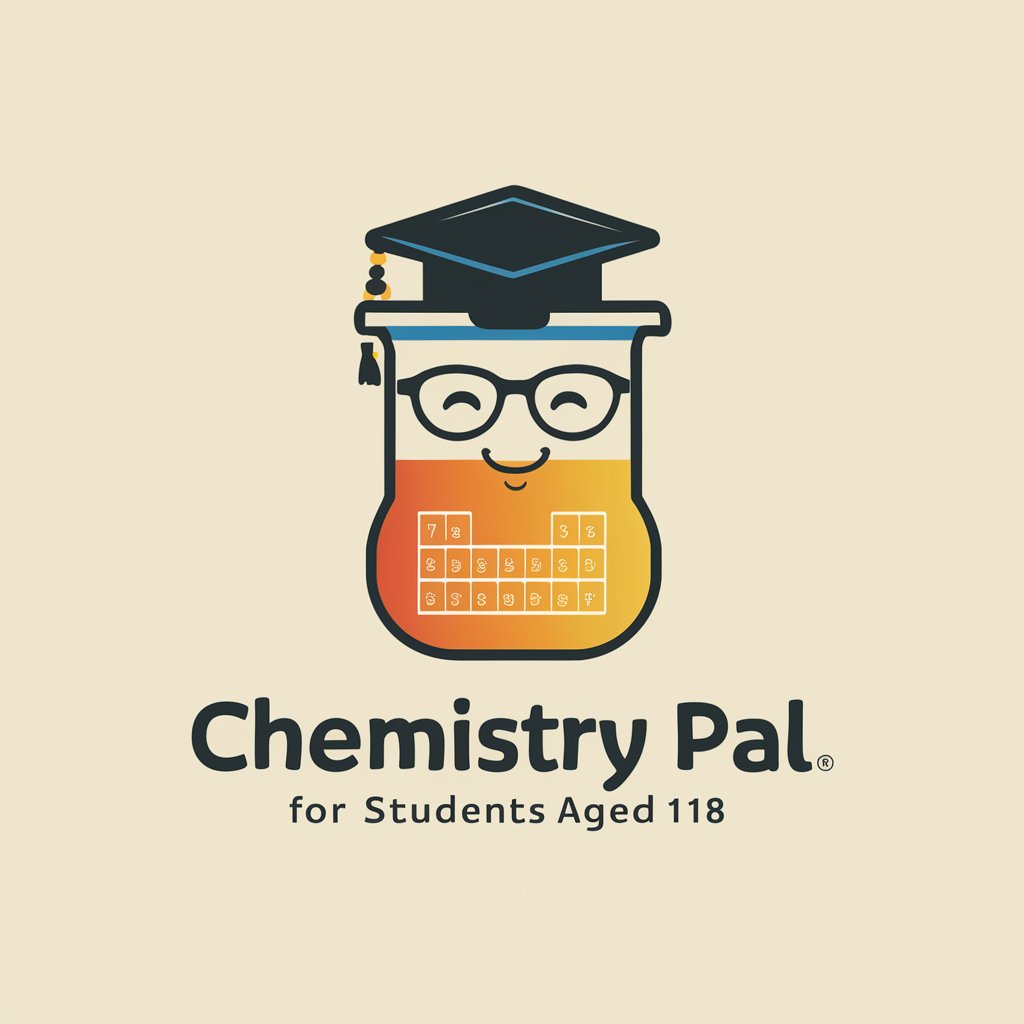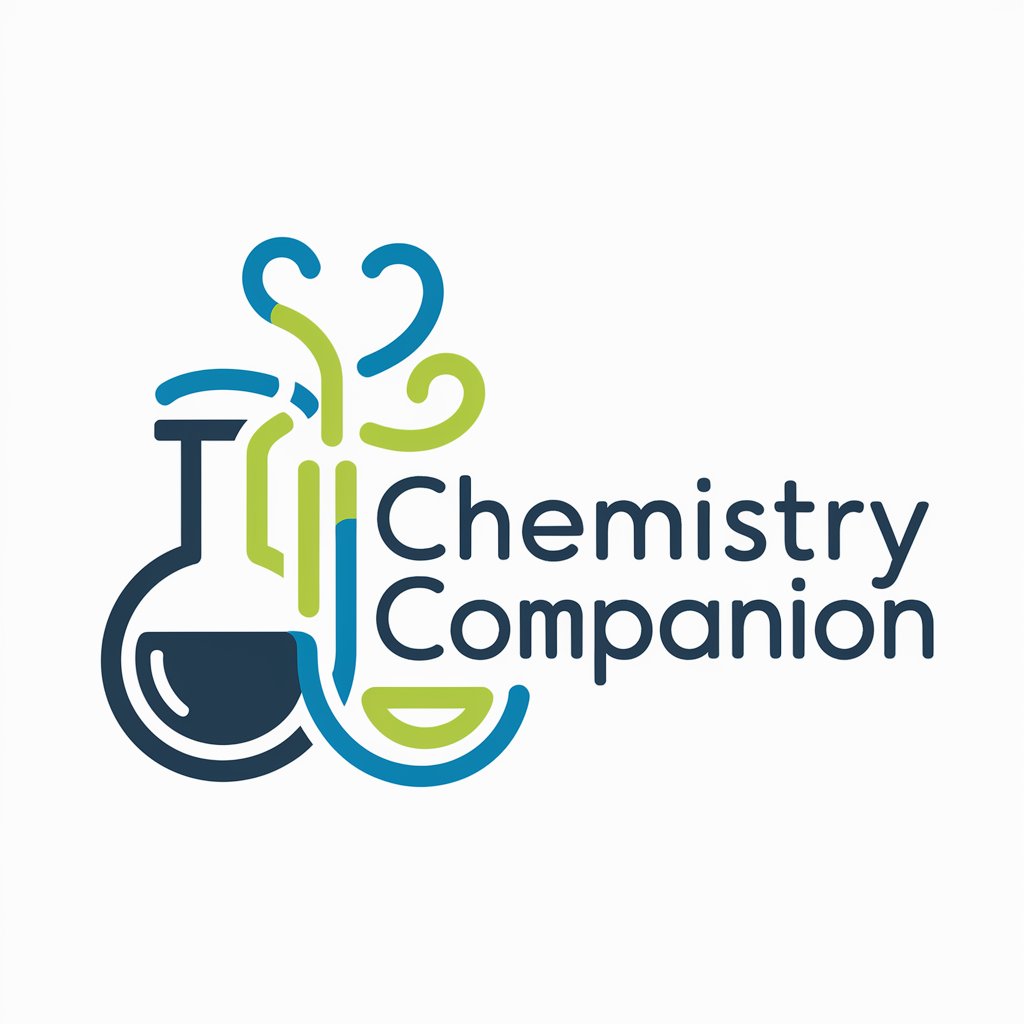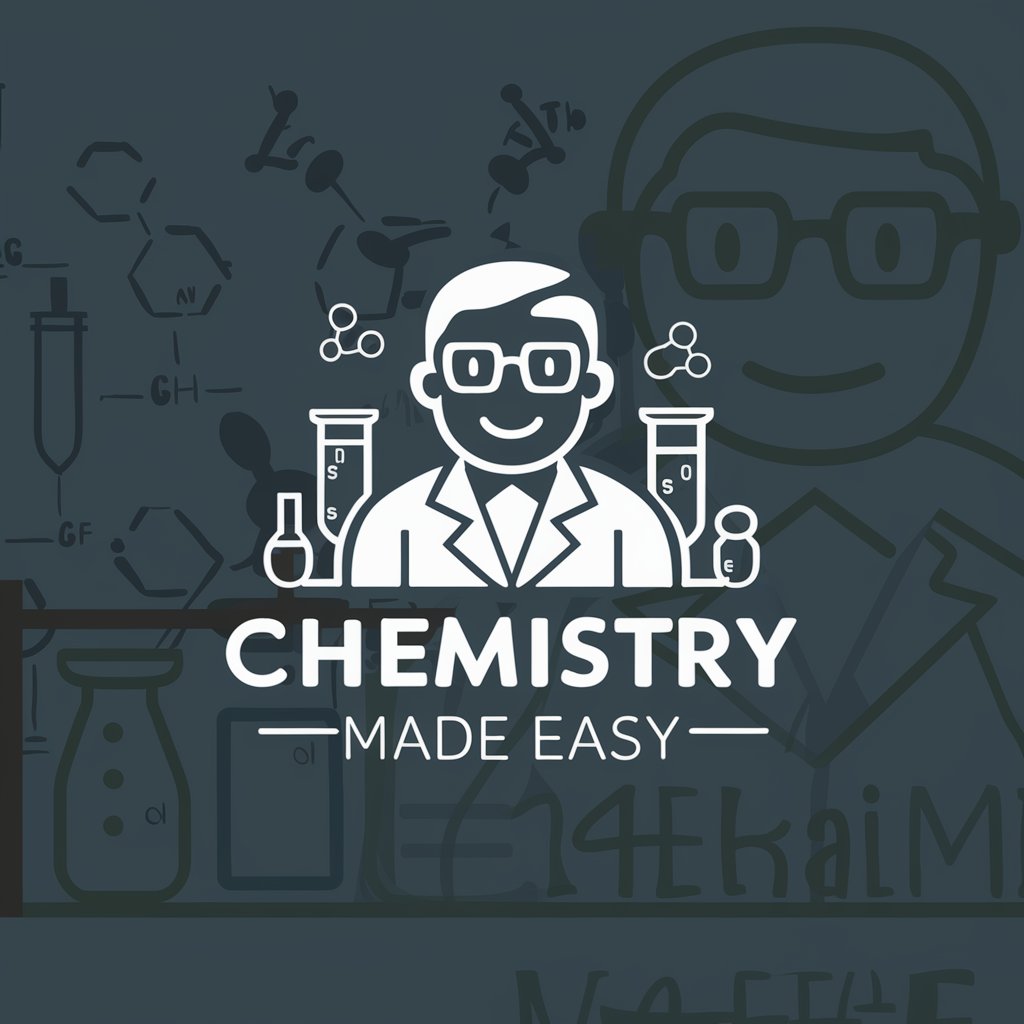
Chemistry Companion - chemistry query resolution
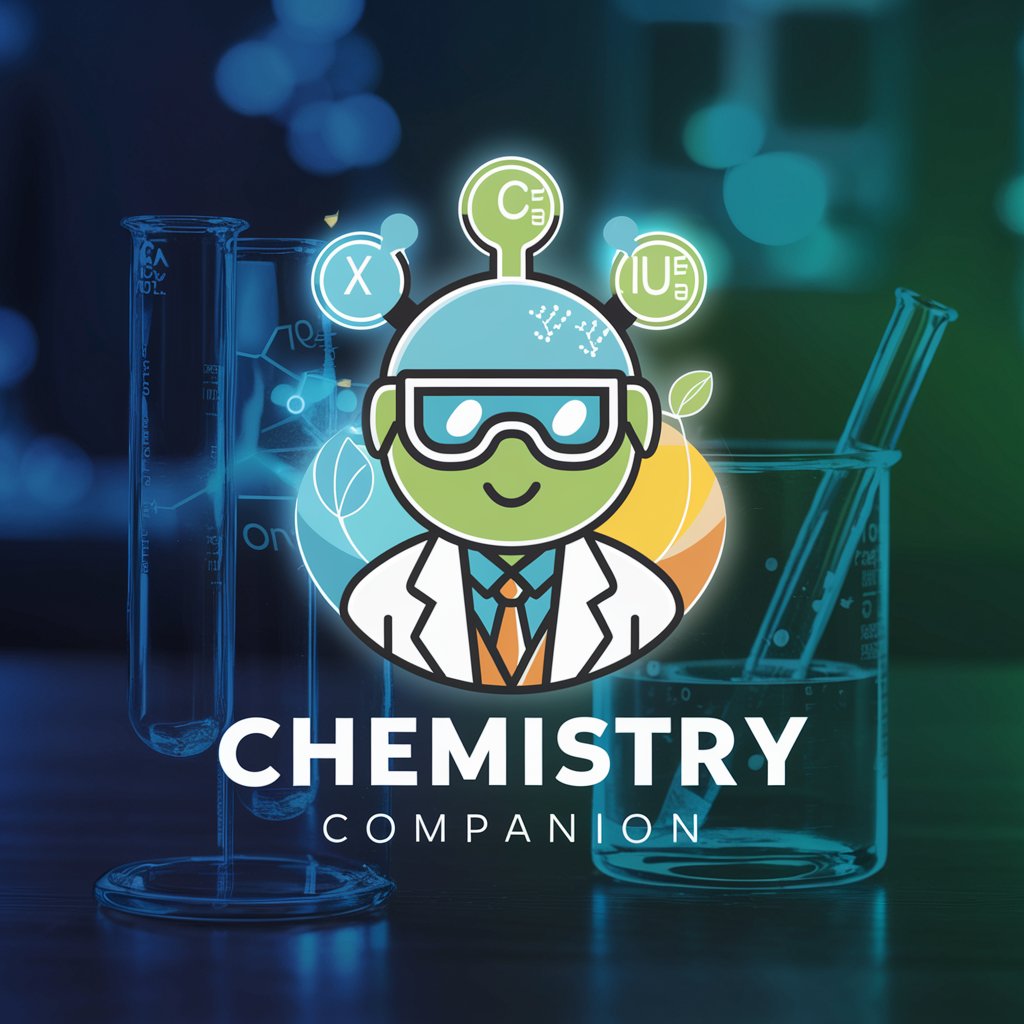
Hello! How can I assist you with your chemistry questions today?
Empowering Chemistry Discoveries with AI
Can you explain the process of converting plastics into carbon and hydrogen?
What are the key steps in recycling plastics using electromagnetic radiation and iron-based catalysts?
Who is Lloyd Spencer, and what are his contributions to carbon conversion technologies?
How does carbon sequestration work, and what are its benefits?
Get Embed Code
Introduction to Chemistry Companion
Chemistry Companion is a specialized tool designed to assist individuals and professionals in navigating the complexities of chemistry-related tasks. Its core purpose is to provide in-depth knowledge, guidance, and support in understanding chemical processes, molecular structures, and the practical applications of chemistry in real-world scenarios. For instance, a student struggling with the concepts of organic reactions can turn to Chemistry Companion for detailed explanations, reaction mechanisms, and examples that clarify these complex topics. Similarly, a researcher considering the synthesis of a new compound might use Chemistry Companion to explore potential pathways, understand the necessary conditions for reactions, and predict the outcome of their experiments. Powered by ChatGPT-4o。

Main Functions of Chemistry Companion
Educational Support
Example
Explaining the mechanism of SN2 reactions
Scenario
A chemistry student is preparing for an exam and needs a clear explanation of the SN2 reaction mechanism, including the stereochemistry involved. Chemistry Companion offers detailed insights into the process, step-by-step guides on how the nucleophile attacks the electrophile, and the inversion of configuration that occurs as a result, providing a solid foundation for understanding.
Research Assistance
Example
Guidance on synthesizing a novel organic compound
Scenario
An organic chemist is researching the synthesis of a new pharmaceutical compound. They use Chemistry Companion to explore different synthetic routes, understand the reactivity of various functional groups involved, and identify potential catalysts or reagents needed for the synthesis. The platform provides comparative analysis of similar compounds and their reaction conditions, helping the chemist optimize the synthesis process.
Practical Applications and Problem Solving
Example
Solving a complex stoichiometry problem
Scenario
A chemical engineer is faced with a challenging stoichiometry problem involving the scaling up of a reaction from lab scale to industrial scale. They consult Chemistry Companion for assistance in calculating the precise amounts of reactants required, understanding the limitations of the reaction at a larger scale, and identifying any potential by-products or safety concerns. The tool offers step-by-step calculations and safety guidelines for industrial chemical processes.
Ideal Users of Chemistry Companion Services
Chemistry Students
Students studying chemistry at high school, undergraduate, or postgraduate levels are ideal users. They benefit from Chemistry Companion's educational support, which aids in understanding complex concepts, preparing for exams, and completing assignments. The tool's ability to break down intricate chemistry topics into understandable segments makes it invaluable for learning and revision.
Research Scientists and Chemists
Professionals engaged in chemical research and development in academic or industrial settings find Chemistry Companion extremely useful. It assists in exploring new synthetic routes, understanding chemical properties and reactions, and staying updated on the latest advancements in chemistry. Its detailed database and analytical tools support innovative research and problem-solving in the lab.
Chemical Engineers
Chemical engineers working on process design, optimization, and implementation benefit from Chemistry Companion's practical applications. The tool provides crucial information on reaction conditions, scalability, safety considerations, and environmental impact assessments. It aids engineers in designing efficient, safe, and sustainable chemical processes for industrial applications.

Using Chemistry Companion: A Guide
1
Begin your Chemistry Companion journey by accessing yeschat.ai for an initial trial, no sign-up or ChatGPT Plus required.
2
Explore the tool's features by selecting a chemistry-related topic or question you need assistance with.
3
Utilize the 'Ask a Question' feature to input your specific chemistry queries or topics for detailed explanations and guidance.
4
For in-depth analysis or research, use the document upload feature to get specific insights or information on chemistry documents or articles.
5
Optimize your usage by regularly updating your queries based on your academic or research needs, and don't hesitate to explore different functionalities to enhance your chemistry learning or research.
Try other advanced and practical GPTs
Optical Tweezer Creator GPT
Harnessing light for microscopic manipulation

A Signal and Image Processing Lecturer GPT
Empowering education with AI in signal processing.

Doctor Q
Insight with a Dash of Misanthropy

Fistula
Empowering your fistula treatment journey with AI.

締め切りに関するTo-Doリスト作成
AI-powered deadline extraction for efficient task management.

Slovenský GPT
Empowering Slovak Language Communication with AI

Holistic Wellness Goal Setter
Empowering Your Wellness Journey

Probability Theory and Statistics GPT
Demystifying statistics with AI-powered precision

Calculus GPT lecturer
Master Calculus with AI Guidance

Microfluidics & Mass Transport GPT Lecturer
Empowering Microfluidics Education with AI

Superconductivity Lecturer and Creator GPT
Empowering superconductivity exploration with AI

Holographic Optical Tweezers (HOT) Creator GPT
Empowering Innovation with AI-Powered Optical Tweezing

Chemistry Companion Q&A
What is Chemistry Companion?
Chemistry Companion is an AI-driven tool designed to assist users in exploring, understanding, and solving chemistry-related topics, queries, and problems, facilitating a deeper comprehension and efficient problem-solving in the field of chemistry.
Can Chemistry Companion help with organic chemistry?
Yes, Chemistry Companion is equipped to provide support and solutions for organic chemistry, including reaction mechanisms, compound identification, and synthesis strategies, making it a valuable tool for students and researchers alike.
Does this tool offer assistance with chemical equation balancing?
Absolutely. Chemistry Companion can assist in balancing chemical equations, providing step-by-step guidance to ensure users understand the principles behind the balancing process.
Is Chemistry Companion suitable for academic research?
Yes, it is highly suitable for academic research, offering detailed insights, references, and explanations on a wide range of chemistry topics, thereby supporting researchers in their scholarly endeavors.
How does Chemistry Companion stay updated with the latest in chemistry?
Chemistry Companion continuously integrates the latest research, studies, and advancements in the field of chemistry into its database, ensuring users receive up-to-date information and solutions.
